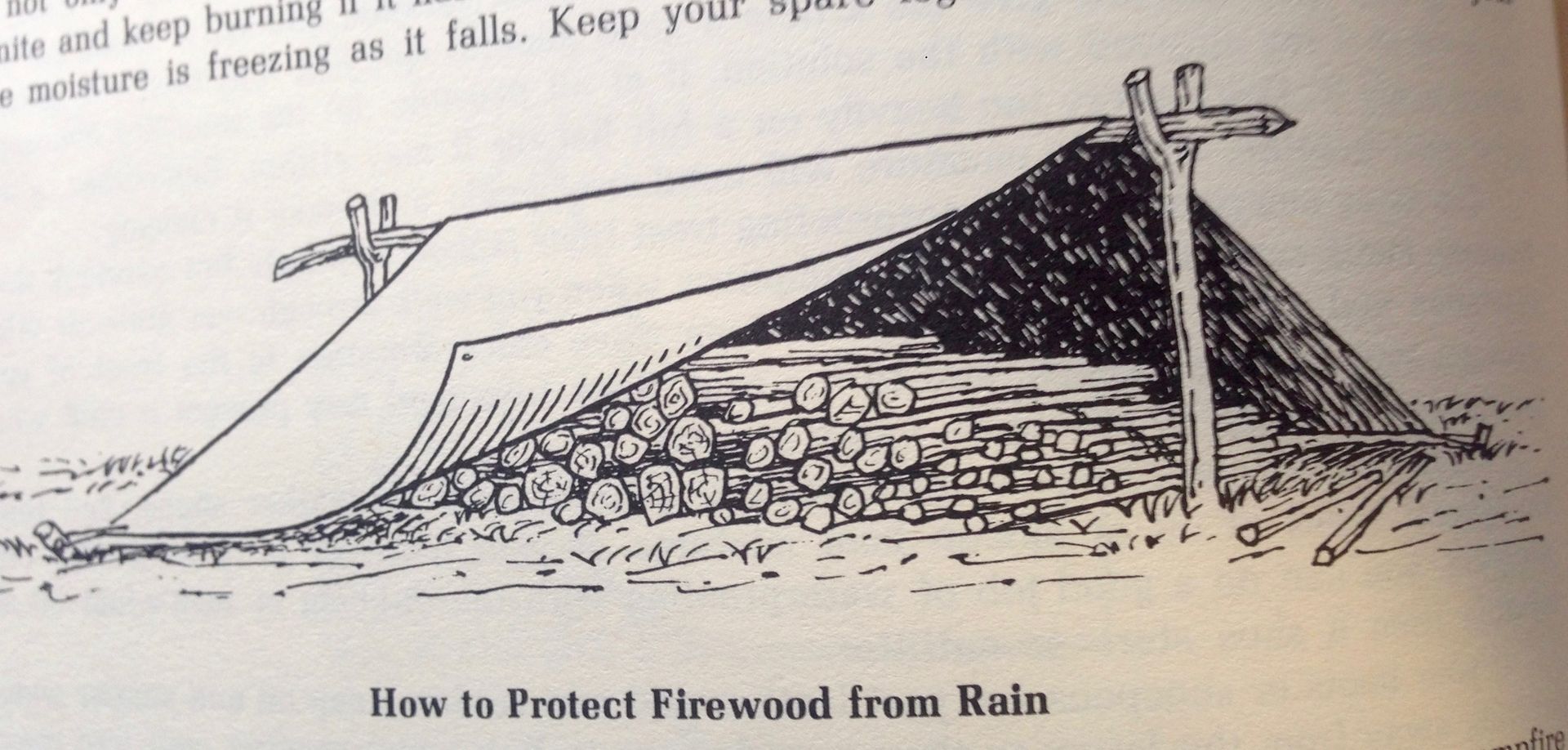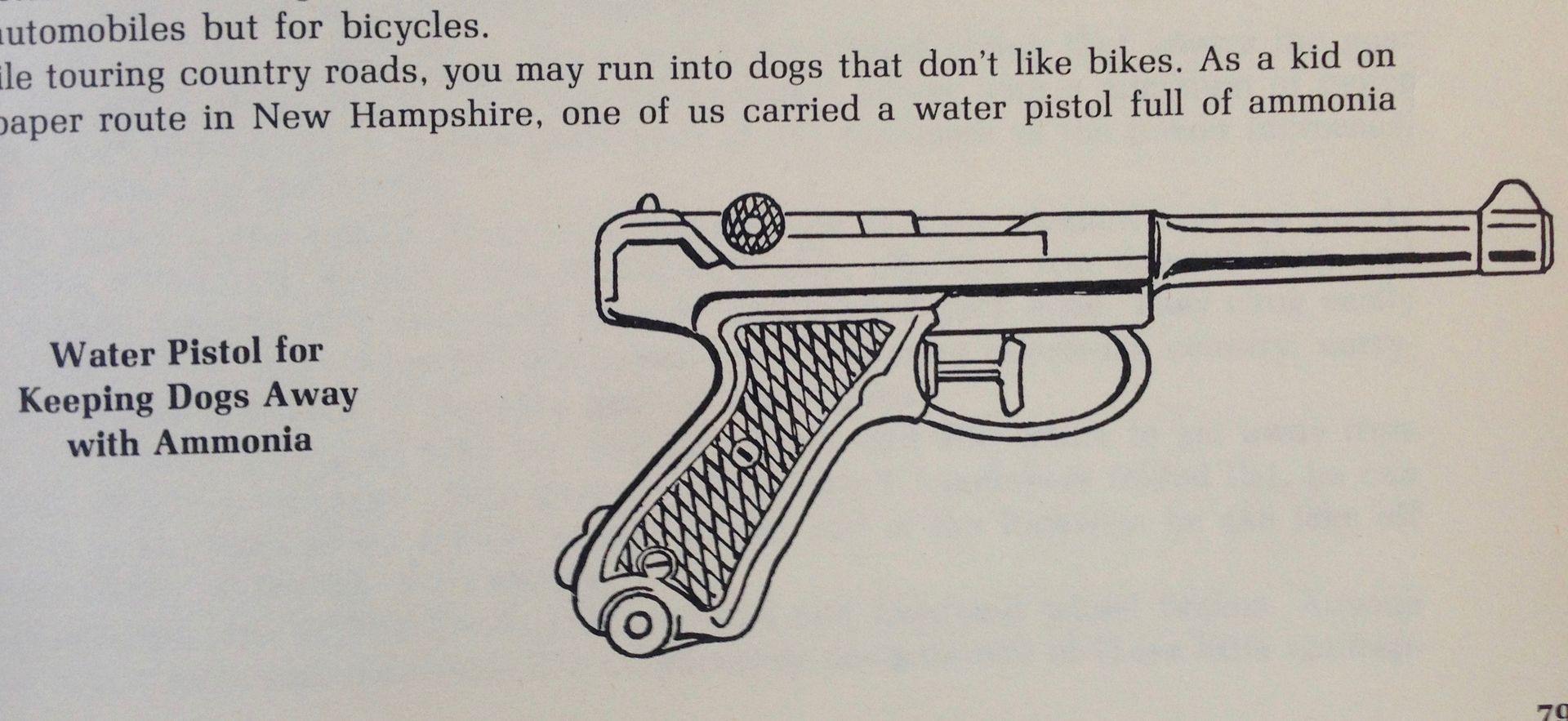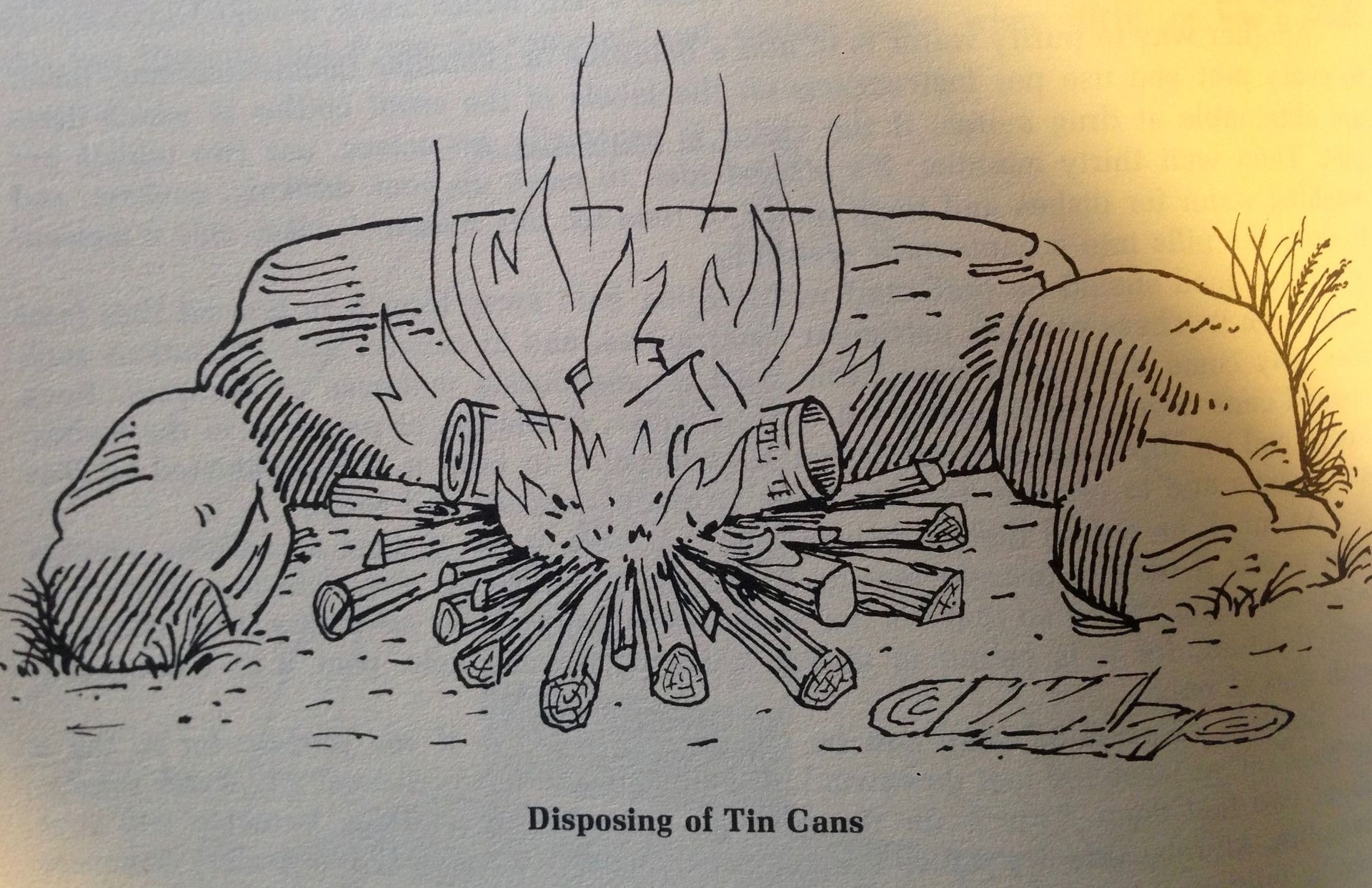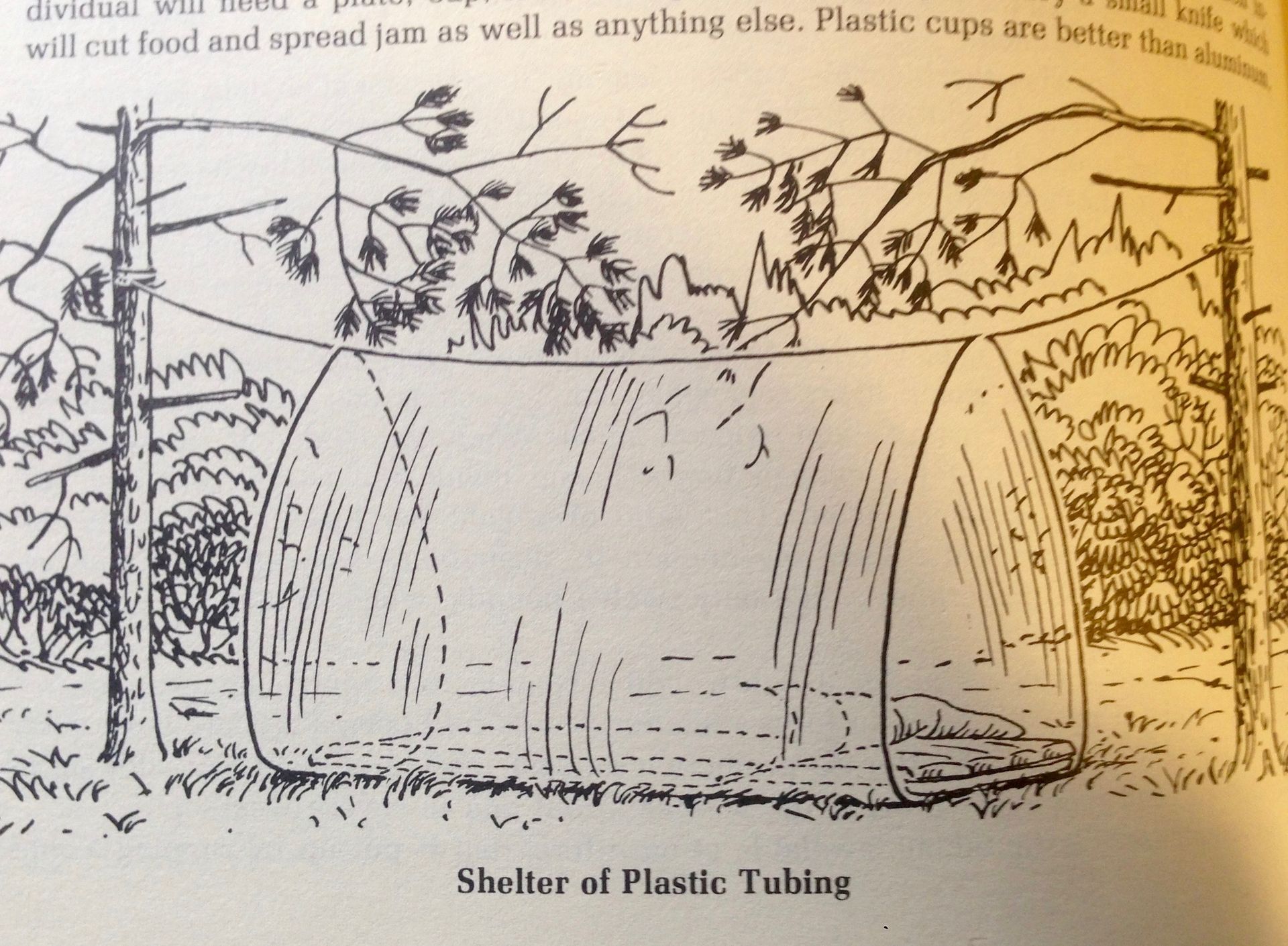Best Outdated Outdoor Tips From 1970
Found a blast from the past today at the local thrift shop with the book, ‘The Art and Science of Taking to the Woods,’ published in 1970. I figured I’d compare Winding Waters rafting trips with old-style 1970s outdoorsiness. I expected to smile condescendingly at their crappy old gear, but instead I saw this futuristic Buck Rogers plastic tubing tent, which doesn’t make much sense to me, but now I kind of want to sleep in a big plastic tube for no good reason.
It’s good to check in with our elders now and then to make sure we’re not repeating mistakes they’ve already licked, so here’s highlights from how to get along out of doors, 1970s-style.
Chapter 8. Clothes to Take to the Woods in
“Good shirts have long tails to keep them inside the trousers when you’re exerting yourself.”
Amen. Nothing worse than a flim-flam short-tailed shirt creeping out of the trousers when I’m exerting myself.
“Take along at least one complete underwear change even in cold weather, and keep one set washed . . .”
Whoah, whoah, whoah, 1970. Hold the rotary phone. Extra underoos and they have to be washed? I thought we were roughing it here.
“Be sure to to buy canvas shoes wide enough and long enough, or you’ll soon find your big toe wearing holes.”
Now you tell me.
Chapter 11. Packing Makes Perfect
“If you are using a sedan rather than a station wagon, be sure to secure the trunk lid firmly.”
I think we can agree this is a dumb tip. Who would use a sedan instead of a station wagon? Duh. But this next one is a bonafide wisdom nugget:
“The crease between the back and bottom cushions of your car’s front seat – which is often full of old wrappers, match packs, and an occasional lost coin – may be just the place to stow an emergency flare.”
Why I never thought of that, I’ll never know. Thank you, 1970. No more stowing road flares in the wrong crease.
Chapter 21. Snowbird Camping
“Foods cook more slowly in cold weather, but many kinds can be hurried by covering them with aluminum foil to keep the top hot while the underside is cooking.”
You cover it? On top? Slow down. This sounds like black magic, but is just crazy enough it might work.
Here we have more of this ‘covering’ wizardry they speak of:

So . . . cover it? On top? Why has this wisdom been lost to the ages? Why?
Chapter 22. Camping on Rock and Sand
Does this next excerpt not sound like a romance novel? I feel like this sounds like a romance novel:
“When you take to the wilderness, perhaps you’ll ride or hike up from the burning plains to where a canyon’s rising tangents lift into broken masses of ravine and butte and the deep green sweeps of pine, to camp far up where peaks rear their stony shoulders.”
Uh, OK. I checked and neither of these authors, C.B. Colby and Bradford Angier, wrote any romance novels, despite the rising tangents and rearing peaks in that paragraph up there. Whew. These dudes were nature lovers though, no doubt.
Bonus Tip: Dog Squirter

So far I’ve never required a method to keep dogs away while camping, but now I kind of want to be hassled by dingoes so I can break out the ammonia water pistol. Solid tip, fellas.
Chapter 23. That First Night in Camp
“If you don’t change clothes, at least remove your trousers.”
Okey-doke. But two paragraphs later, we get this bombshell:
“There may be some very cold nights when you’ll elect to sleep in your trousers. Then loosen your belt, empty the pockets and keep the legs down where they belong by tucking them inside your socks, perhaps adding rubber bands around your ankles just above where the trousers end.”
Chapter 24. Those One-Night Stands
Uh . . . guys? I might skip this chapter. Who am I kidding, of course I’m going to read this. Oh, forget it, it’s about short two-day trips.
Chapter 32: Camp Sanitation

This isn’t quite as bad as it looks. They’re advocating burning off the food residue so as not to attract animals and burning off the “tinning” so cans rust faster. OK, still pretty bad. We’ll stick with Pack It In, Pack It Out and Leave No Trace.
Chapter 46: Foiling Petty Thieves in Camp
“Stealing from a camper is a low form of pilfery.” No argument here. Hate pilfery.
“Usually a petty thief will move out of a campground after stealing something, but he may claim that he found the item. In this case, just identify it and thank him for ‘finding’ it and let it go at that.”
CSI: Polite Squad. Simpler times, those 1970s. But, for the record, theft is not a problem on our trips. In the event a petty thief did try to enter our camp to pilfer, Todd would just spray them with the ammonia squirt gun. Like a dog.
Or Go With an Outfitter
‘The Art and Science of Taking to the Woods’ includes this observation:
“You can plan a real cruise into unfamiliar territory under the direction of some professional outfitter and have little to worry about or to provide for yourself. These outfitters furnish everything from canoe and paddles to the cooking equipment, sleeping gear, tents, axes, and the like, all for about $5 a day or less per person.”
Well, close. A few things have changed. We don’t really provide everyone with axes. We bring one, and you can use it, I guess, if you really want. But we take care of chopping the wood and all that. It’s included in the $5 a day or less. Actually, that rate might have gone up some too. We don’t have plastic tubes for tents, sad to say, but our modern tents work real well. So hop in your sedan or station wagon, make sure there’s a flare tucked in the seat crease, and bring the family on out for a modern rafting adventure this summer in Hells Canyon, down the Lower Salmon or Grande Ronde rivers with Winding Waters River Expeditions. I’ll even loan you my copy of this book if you like.
Click here for trips and details and we’ll see you on the river.
The post Best Outdated Outdoor Tips From 1970 appeared first on Winding Waters River Expeditions.






